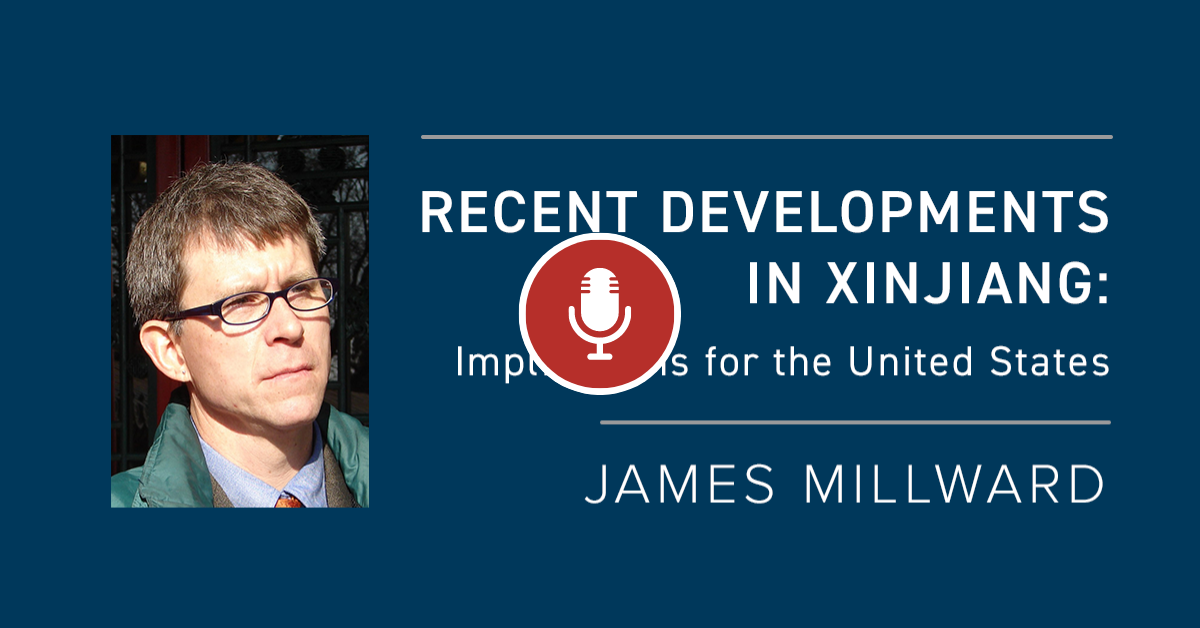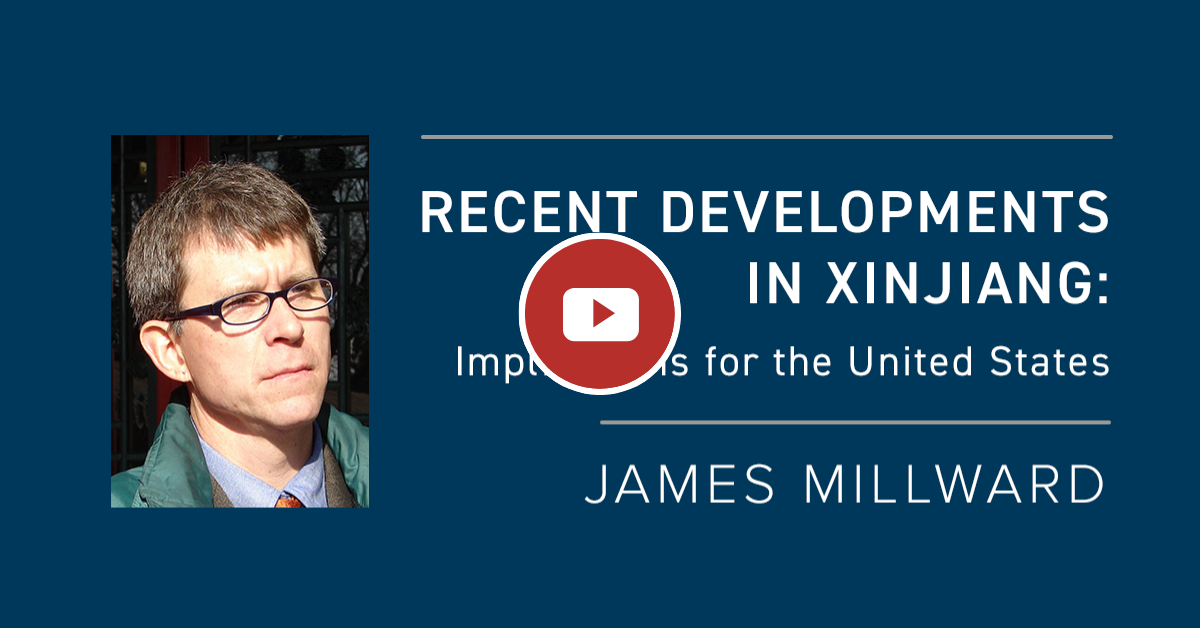Wednesday, March 31, 2021 | 2:00 PM EDT - 2:30 PM EDT
Zoom interview | James Millward
The current crisis in Xinjiang is the immediate product of People’s Republic of China (PRC) and Chinese Communist Party (CCP) policies since the turn of the 21st century, which in many ways represent an about-face from, rather than a continuation of, the ethnic policies implemented by the PRC after it took control of Xinjiang and Tibet in the years after coming to power, and indeed from those of Qing and Republic of China before it. Policies adopted since 2017 have garnered worldwide attention as new technology has dramatically intensified methods of control and implicated China’s international trade, which includes a variety of products from Xinjiang and employs the labor of Xinjiang people. The new CCP ethnic policies thus have growing international repercussions.
Dr. James Millward discusses recent developments in Xinjiang, responses of governments around the world, and the implications for individual consumers in an interview conducted on March 31, 2021.
Watch the interview | Listen to the podcast

James A. Millward
James A. Millward is professor of intersocietal history at the Walsh School of Foreign Service, Georgetown University, teaching Chinese, Central Asian and world history. His specialties include the Qing empire; the silk road; Eurasian lutes and music in history; and historical and contemporary Xinjiang. He follows and comments on current issues regarding Xinjiang, the Uyghurs and other Xinjiang indigenous peoples, and PRC ethnicity policy. Dr. Millward is the author of Eurasian Crossroads: A History of Xinjiang (2021; 2007); The Silk Road: A Very Short Introduction (2013); New Qing Imperial History: The Making of Inner Asian Empire at Qing Chengde (2004); and Beyond the Pass: Economy, Ethnicity and Empire in Qing Central Asia (1998). His articles and op-eds on contemporary China appear in The New York Times, The Washington Post, The Guardian, The Los Angeles Review of Books, The New York Review of Books, and other media.

